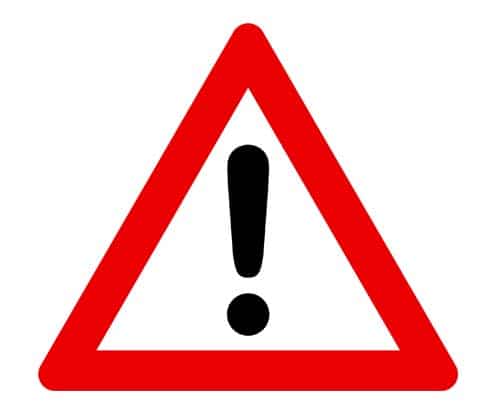
In this article we will cover how to find the right Endocrinologist.
We all know how important it is to feel comfortable with our physicians. These relationships can determine how often you actually show up for an office visit and whether you trust the medical advice your physician is providing to you.
Selecting the right specialist who can help you manage your diabetes may actually change your life! Let’s walk through the steps of helping you find one who is right for you.
Contents
Who is an Endocrinologist?
An endocrinologist is a medical doctor who is a specialist trained in disorders of the endocrine system. While the most common diseases they treat are diabetes and thyroid disorders, endocrinologists may also treat many other illnesses and disorders such as osteoporosis.
It is important to find an endocrinologist with a special interest in treating diabetes. All endocrinologists are trained to treat people with diabetes, but some have completed advanced specialty training in diabetes.
How does one become an Endocrinologist?
An endocrinologist first becomes a medical doctor by attending 4 years of medical school, then completing their 3 years of residency training, followed by 2-3 years of specialty training as an endocrine fellow. They train under an endocrinologist attending physician at a teaching hospital and throughout this 2-3 years, they gain the experience they will need to successfully treat endocrine patients on their own. At this point, they can sit for the exam to become board certified in endocrinology.
What’s the difference between an Endocrinologist and a Diabetologist?
A diabetologist is a physician who only treats patients with diabetes. Where endocrinologists have specialized training and treat other diseases of the endocrine system, diabetologists usually are internal medicine physicians. Even though they have not received the extra training, they do obtain much experience as they only see people with diabetes.
When Should I See an Endocrinologist Instead of my Primary Care Physician?
So when should you see an endocrinologist? I have heard many answers to this question through the years from the patients I have seen as a Certified Diabetes Educator. Most often the answer is because they weren’t seeing the control in blood glucose levels they wanted from their primary care physician. There are many reasons people remain under the care of their doctor for diabetes; sometimes it is because their diabetes is under good control, sometimes it is due to a sense of loyalty. Sometimes it is a fear of hurting our doctor’s feelings. Sometimes it is just not knowing there is another kind of doctor out there who specializes in treating a disease or disorder we may be suffering with.
As a Certified Diabetes Educator, I believe finding an endocrinologist is necessary when your diabetes management is not controlled by your primary care physician. This is especially important if you aren’t receiving the appropriate referrals to other Healthcare Professionals essential to the prevention of all the serious complications related to diabetes.
I advise reading the following:
Also, when you become interested in more advanced care for your diabetes, it is probably time to switch to an endocrinologist. There are many technological options available to people with diabetes today and a specialist is better equipped to explain all of these options to you. Today we already have so many different blood glucose meters, continuous glucose monitors, and insulin pump systems to choose from, and new options are rapidly becoming available every day. Sales representatives from these companies keep the endocrinologists and Certified Diabetes Educators current on all of the latest research and devices.
The Endocrinologists’ Role
Bear in mind, you will need to continue seeing your primary care physician for all of your other healthcare needs since your endocrinologist will only be focusing on your diabetes, thyroid and possibly osteoporosis care. Do not expect your endocrinologist to treat your flu-like symptoms or sprained ankle, because that is not their role. Asking them to do this puts them in a very uncomfortable position and you certainly don’t want to start off your relationship with them like that.
Expect your first visit to be lengthier with the endocrinologist because they will be helping you understand exactly what diabetes is and how it affects your body. They will also be reviewing all your current diabetes medications and lab work to determine if any changes need to be made to your current medication regimen. They may also order additional lab work if your labs aren’t current or comprehensive.
Subsequent visits will be shorter and you may follow up with a nurse practitioner or a physicians’ assistant. These healthcare practitioners often see patients in busy endocrinology offices under the guidance of an endocrinologist. They are highly skilled, experienced practitioners who also provide a high level of diabetes care. If you would prefer to remain only under the care of the endocrinologist, you can discuss this option with them at your initial visit. Typically, they are booked up for months in advance, so remember to schedule your follow up visits before leaving the office and expect to have a longer time between appointments. If you need to be seen back sooner, such as a one month follow-up visit, it is not unreasonable for you to be seen by a different practitioner.
You may also see a Certified Diabetes Educator (CDE) or be asked to schedule a follow up appointment with one. Many endocrinologists have a CDE in their office or can refer you to one. The initial visit with a Certified Diabetes Educator will be a one hour assessment, often times combined with some initial education.
Explaining how diabetes medications work
Since your endocrinologist will be reviewing all of your current medications, make sure to take all your medications along with your blood glucose meter and logbook with you to that first visit. They will be making important decisions about your medications based on what you have been taking, what your most current lab work revealed and what your blood glucose trends are. Without all of this information, they will not be able to make an informed decision about what medications will work best to control your diabetes.
Before making any changes to your medications, expect your endocrinologist to explain what any new drugs are and how they work in your body. They will want to present you with your best options, but will always explain what to expect from any new medications they want to add to your medication regimen. If they don’t, then you should most certainly ask them any questions you need to feel comfortable in making an informed decision about starting a new medication.
If costs are an issue with a new medication, lab tests, BG testing strips or anything related to your diabetes care, please speak up! We want you to feel comfortable letting us know this rather than just not filling the prescription and showing up two months later without taking it.
Many times endocrinology offices will have savings cards available that may provide significant savings on medications and blood glucose testing strips. Keep in mind however, if you are enrolled in any government or state health insurance plan, these plans do not allow you to use savings cards. This will include Medicare, Medicaid, and VA plans to name a few. If this is the case, your doctor will always be willing to work with you to find a more inexpensive alternative. One great benefit is endocrinology offices normally have blood glucose meters available free of charge for you.
How Much Will My Visit to the Endocrinologist Cost?
The cost of the visit to the endocrinologist will vary from practice to practice, so you will need to contact the office you are interested in visiting for specific costs. The cost will be determined by whether you have insurance or not.
If you do not have insurance, most offices have a special fee for self-pay patients and may even be willing to let you pay in installment payments. You will want to speak with the offices’ billing department when searching for an endocrinologist to help you in the decision making process.
Do I need a Physician’s Referral?
When Mary contacted TheDiabetesCouncil, she was concerned about whether or not she could see an endocrinologist because she wasn’t sure if she needed a referral or not. Mary asked exactly what the process was and how she should go about making an appointment.
Do you normally need a referral to see other specialists such as orthopedic physicians or cardiologists? If so, you will need one for an endocrinologists also, because they are characterized as specialists. If you aren’t sure, the best place to start is to contact your insurance company; they will be able to tell you if you need a referral for a specialist visit.
Does Insurance Cover Seeing an Endocrinologist?
If you have insurance, you can contact your insurance company to find out exactly what your costs will be for the visit. An endocrinologist is considered a specialist, so many insurance companies have a specialty copay you will be required to pay at the time of the visit. This specialty copay is typically a little higher than the copay that you pay to your primary care physician. Your insurance company will also be able to tell you the cost of any copay or coinsurance amounts you will be responsible for.
You can also save on costs by finding a provider that is in your insurance company’s network. You can contact your insurance company by phone or perform an online search to determine if an endocrinologist is in network. This is also a great way to start your search for a good endocrinologist also.
How and Where Can I Find an Endocrinologist?
There are many ways to find an endocrinologist near you; let’s break it down here!
Your primary care physician may refer you to an endocrinologist, so please feel open to ask your doctor questions about the different endocrinologists in your area. Your doctor may be able to tell you if one endocrinologist starts many patients on insulin pumps or if another office is active in clinical trials. Ask your doctor which endocrinologist he would recommend you see and why.
Another good source is any friends or family members you have that already see an endocrinologist. Word-of-mouth is an excellent way to find a new office; chances are, if they’re good enough for your picky Aunt Bessie, you will love them!
Don’t forget the old fashioned way to search; using our phone books to look for an endocrinologist is still an option you can use. If you have access to a computer, you can do an online search. Also online, most local hospitals normally have some type of physician search feature where you can search for a new physician by their specialty. Some hospitals even offer this service by phone, so if you do not have access to a computer, you can call in and they can assist you in finding an endocrinologist near you.
There are many online searches that will help you find a local endocrinologist. The American Association of Clinical Endocrinologists has a search of its members where you can even specify diabetes as the endocrine focus of specialty and The Endocrine Society is another great online search.
Note:
One challenge many people with diabetes face is communicating about their treatment and goals with family and healthcare providers. The Hormone Health Network launched DAILY (Diabetes Awareness Information for Loved Ones and You), an interactive tool designed to enable patients with diabetes to communicate better with their healthcare team and loved ones. It offers a number of resources to help with goal-setting.
Amy Tenderich provides other great tips such as ensuring the endocrinologist works with a Certified Diabetes Educator. Because you will be spending more time with the CDE, this relationship will be very important to your diabetes management.
Some other important information you may want to think through:
- Not all endocrinologists’ offices accept new diabetes patients; managing diabetes patients can be very time consuming for an office and its staff. If the office is too small, they may not be staffed adequately to provide enough care that patients with diabetes would need. Your first step when you finally find an office you are interested in will be to call and see if they are accepting new patients with diabetes.
- Next, once you have determined that they are accepting new diabetes patients ask what the wait time is for a new patient appointment. Some offices are booked for months in advance, so if you need to see an endocrinologist urgently, you will need to take this into consideration when making your decision. Your primary care physician may be able to expedite the process, so always let them know if you are unable to secure an appointment within a reasonable length of time. If they are unable to assist, they will be able to refer you to another endocrinologist.
- Next, make sure they accept your insurance or Medicare plan. Not all offices participate with all health insurance plans, so ask at that very first call.
- If you are pregnant or plan to become pregnant, ask if they treat diabetes patients who are pregnant. If you have been diagnosed with Gestational diabetes, ask if they treat and manage patients with Gestational diabetes throughout their pregnancy.
Making the Most of Your First Trip
Here are some things to keep in mind.
Ask questions and write down all your questions
If you are pregnant, this may warrant a consultation with the endocrinologist where you sit down and have a conversation with them regarding how they would manage you and your unborn baby throughout your pregnancy. Come armed with a list of questions such as how closely would they work with your obstetrician, if you had to go on insulin, would the endocrinologist take responsibility for providing the dose adjustments, etc…
I believe all patients seeing any doctor should come to the visit prepared with a list of questions. You have a couple of symptoms you have been meaning to report to your doctor or something important you want to discuss and what happens as they walk into the room? Your mind goes blank! If you have a list of questions or specific issues you would like to discuss written down, it makes it much easier to remain focused during the visit.
How many of you ask your significant other when they get home from their doctors’ visit how it went and their reply is always, “fine”. You then proceed to ask them specific questions related to perhaps their blood pressure or blood glucose levels, but they aren’t able to provide you with any specific answers.
The best offices I educate in provide a great solution to this age old problem! Most offices provide patients with a full record of everything that occurred during that day’s visit…all the numbers such as weight, blood pressure, blood sugar, and any lab work that was reviewed during the visit. The plan or your goals are also clearly written out so you understand exactly what is expected of you until your next appointment. We will review goals more in a moment, but if you do not understand something, this leads to my next very important point.
Be curious and be honest
It is so important to ask questions when you don’t understand something. Have you ever heard the saying, “there is never a stupid question”? There certainly isn’t when it comes to your health. Your doctor will know you are an active participant in your healthcare when you do ask questions. I cannot stress enough the importance of asking questions, especially if you do not understand exactly when and how to take your medications.
Not every office provides written instructions nice and neatly like the wonderful offices I have the pleasure of seeing patients in. If you do not receive written instructions, especially for how to take a new medication, then please do not be afraid to ask for them.
Over the years, I have seen thousands of patients with diabetes. Of these thousands of patients, there have been countless that did not fully understand how to take their medications and were afraid to speak up and ask the doctor. Some patients couldn’t read the instructions and were ashamed to tell the doctor they couldn’t read and simply needed everything read out loud to them. Some weren’t provided the written instructions or lost their written instructions.
Some of these patients just couldn’t even hear the doctor’s instructions due to being hard of hearing and didn’t want to ask the doctor to repeat the instructions more loudly. My mom was ready to stop going to see one of her doctors for this very reason (sorry Mom); luckily, that doctor had hearing problems of his own too and ended up retiring recently!
In my experience, some of these patients have gone home and actually taken the medications incorrectly. Some have just gone home and hoped they would figure it out on their own. When they were unable to figure it out, instead of calling the office for the instructions, they do not start the medication at all.
They return to the office two or three months later and have to make up an excuse as to why they didn’t start the medication. They may say they couldn’t afford it, or they lost the prescription, or that the pharmacy said they never received the prescription. My favorite patients are just honest about everything!
It is so important to be honest with your physicians. I can’t tell you how many times I have seen a patient right after they have seen the endocrinologist and they divulge information to me they have not provided to the physician. Many times it is crucial information that the doctor needs to be aware of such as regularly skipping doses of mealtime insulin or not checking their blood glucose level prior to taking their mealtime insulin. Often times the doctor will have made medication changes based on limited information which can have dangerous consequences.
Additional pieces to read:
Luckily, if the patient is being seen by a Certified Diabetes Educator, we can do an assessment to determine what the real issues are and report back to the physician. The take home message here is be honest with your doctor because the only person you will be hurting by not being entirely truthful is yourself. We are all on the same team and we are all rooting for you!
Set goals
Lastly, you will want to set goals. Whether you are working with your endocrinologist or a Certified Diabetes Educator, you will set goals to work on until your next appointment. These goals should be measurable and achievable; I’ll give you some examples to explain.
- I will lose 5 pounds in the next month
- I will start walking for 15-30 minutes 3 days per week
- I will stop drinking all regular sodas and fruit juices within the next month
Set goals at each appointment and work towards these goals between appointments.
If your doctor doesn’t set goals, you can set your own goals! It will help keep you accountable and keep you on track. Remember, you are the one in charge of your health and you can manage your diabetes! Just remember, TheDiabetesCouncil.com is here to help you every step of the way!
This article was reviewed for accuracy by Glenn Sebold from AACE (American Association of Clinical Endocrinologists).
We would also like to thank Sarah Hart-Unger (Board Certified In General Pediatrics And Pediatric Endocrinology By The American Board Of Pediatrics) for taking the time to review the article. Sarah Hart-Unger is a pediatric endocrinologist at Joe DiMaggio Children’s Hospital in Hollywood FL.
TheDiabetesCouncil Article | Reviewed by Dr. Sergii Vasyliuk MD on May 19, 2020
References
- http://www.news-medical.net/health/What-is-an-Endocrinologist.aspx
- http://www.diabetes.org/living-with-diabetes/treatment-and-care/whos-on-your-health-care-team/your-health-care-team.html
- http://healthcare.utah.edu/utahdiabetescenter/when-should-you-see-diabetes-specialist.php
- https://www.aace.com/resources/find-an-endocrinologist
- http://www.hormone.org/contact-a-health-professional/find-an-endocrinologist
- http://www.diabeticconnect.com/diabetes-information-articles/general/4-finding-a-doctor-tip-3-how-to-start-looking












